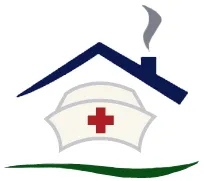Congregate Care at Chino Avenue Home
A Nursing Home in San Bernardino
Congregate care is a relatively new concept that allows mid to long-term care for only 6 patients at a time with round-the-clock nursing. We will customize a care plan for each individual patient. We do this by having the Medical Director and The Director of Nursing meet with the family to define the health goals and a customized plan to achieve those goals. Because we only have 6 patients at a time, it is prudent to hire staff with certain skill sets that meet the needs of each patient.
We are licensed by the California Department of Health as a Level 3 Sub-Acute Health Care Facility in a home-like environment. Our primary patients would be people that need 24/7 nursing care for a medium to long term. The cost for ICU or step-down care can run between $6000 to $12000 per night, and nursing homes are just not equipped for the high level of care. So, we have filled a gap to provide round-the-clock skilled nursing in a home environment for a fraction of the cost.
Insurance Company Benefits
Insurance companies will benefit greatly from the reduced cost while enjoying shorter recovery times and fewer re-admits. This is due to our staff that specializes in respiratory care, wound care, pain management, and many other types of therapy. We create a plan of care for each patient, which may include gently weaning from the ventilator. Sometimes, the patient just needs time to recover with constant attentiveness to their psychological and physical needs.
Hospitals Benefits
Hospitals will love our service, as they need to open up beds for new patients. Our sub-acute care will rival the best available with caring and personal service. Patients have only a limited amount of days that they can spend in a hospital. One of our niche care specialties is tracheostomy and people that require ventilators, as well as wound care. These types of patients many times require long-term care. As we are paid by specially negotiated contracts with insurance companies, we are not always under the same time constraints to move patients out. Sometimes, people just need more time to heal.
We Received the Gold Seal of Approval® From the Joint Commission
Our facility voluntarily underwent a thorough evaluation by The Joint Commission. The goal of the evaluation? To see if our facility meets The Joint Commission’s rigorous performance standards in delivering quality, safe care. By meeting these standards, our facility received The Joint Commission’s Gold Seal of Approval® – an internationally recognized symbol of quality.
The Joint Commission accredits more than 20,500 organizations worldwide and focuses on continually improving healthcare by setting the highest standards for healthcare quality throughout the world. In setting the standards, The Joint Commission consults doctors, nurses, and quality and safety experts to review the current standards and make recommendations for improvements.
Accreditation means that our staff has made an extra effort to review and improve the key areas that can affect the quality and safety of your care. Accreditation by The Joint Commission is considered the gold standard in healthcare. Specially trained healthcare professionals who are experts in their fields visited this facility to conduct a review that monitors how well our staff:
Our Services
-
CNA
-
Acute Care
-
Healthcare
-
Rehab
-
Brain Injury
-
Health Care
-
Nursing Facility Physician
-
Skilled Nursing Facility
-
Nursing Home
-
Post Acute Care
-
Subacute Service
-
Therapy
-
Tracheostomy Care
-
Ventilator
-
Wound Care
-
Pain Management
-
IV Therapy
-
Occupational Therapy
-
Respiratory
-
Pulmonary
-
Tube Feeding
-
Oxygen
-
Radiology and Lab Tests
-
Patient and Family Education
-
Physical Therapy
-
Speech Therapy
-
Brain Rehabilitation
-
Enteral Feedings
-
Respiratory
-
Total Parenteral Nutrition (TPN)
-
Chest Tube Management
-
Chino
-
Congregate Home
